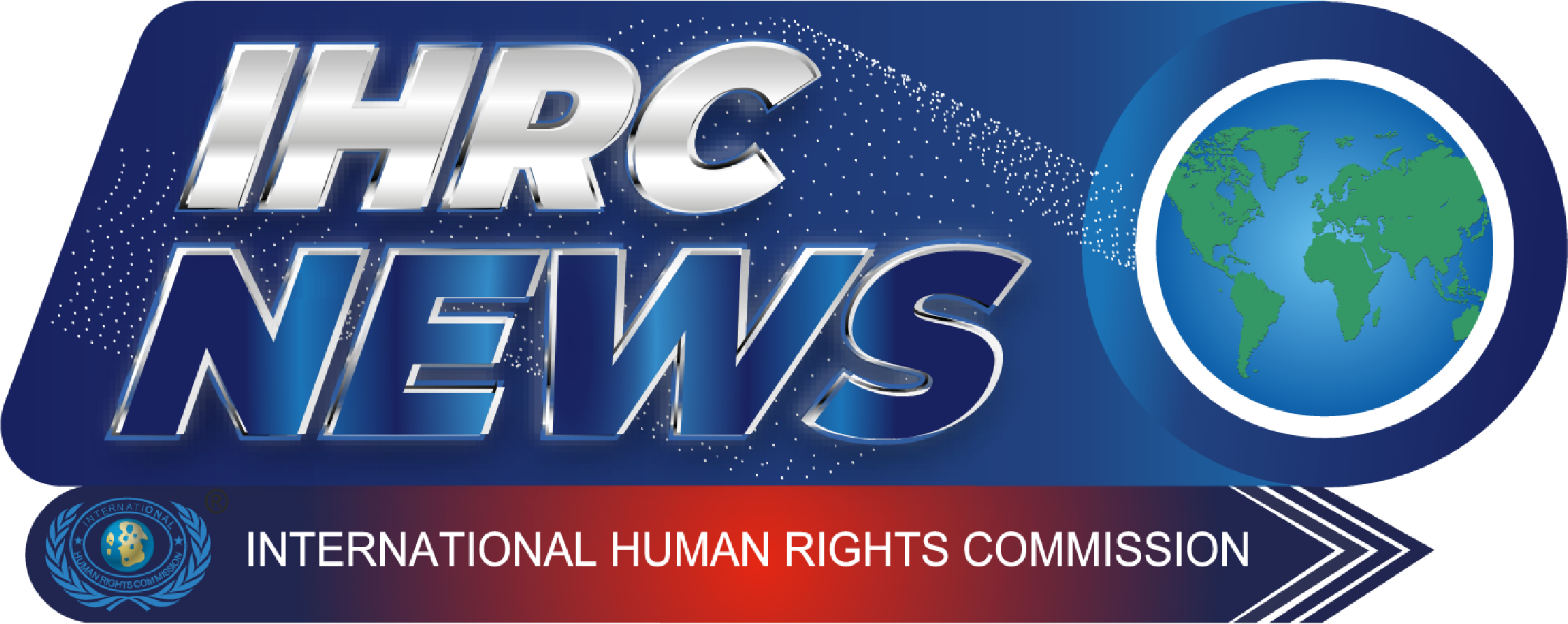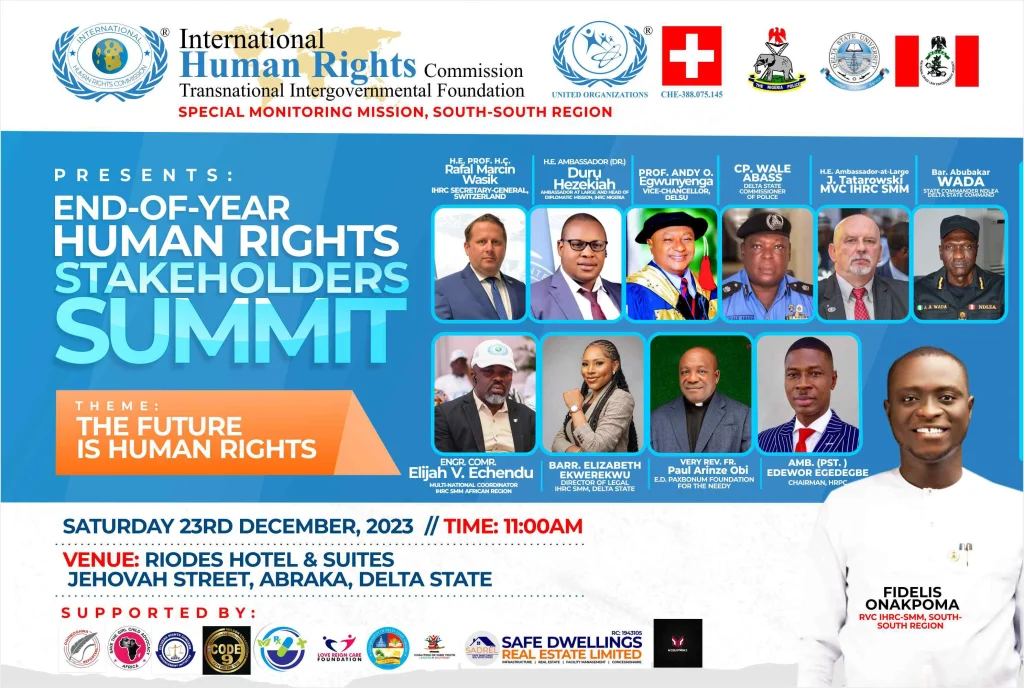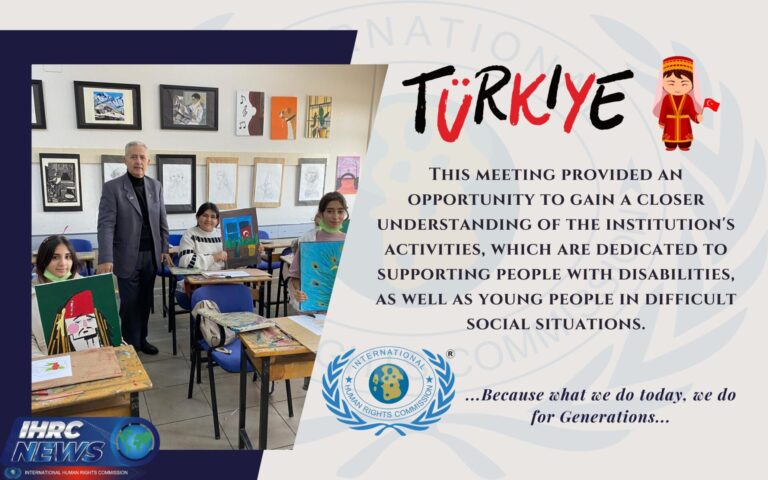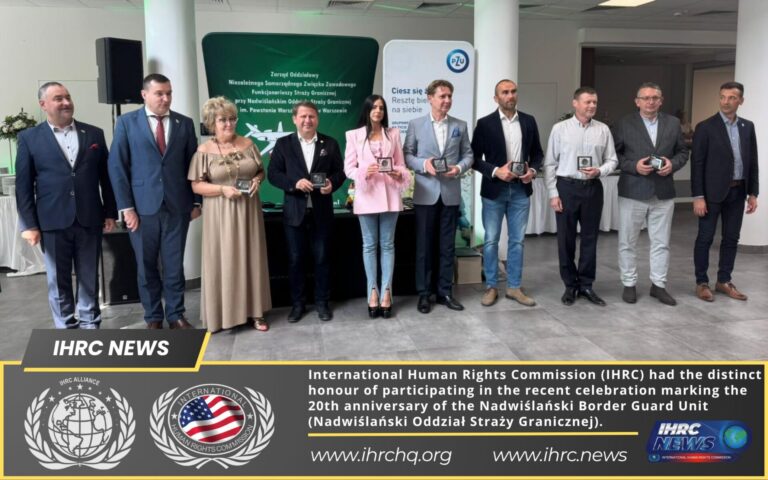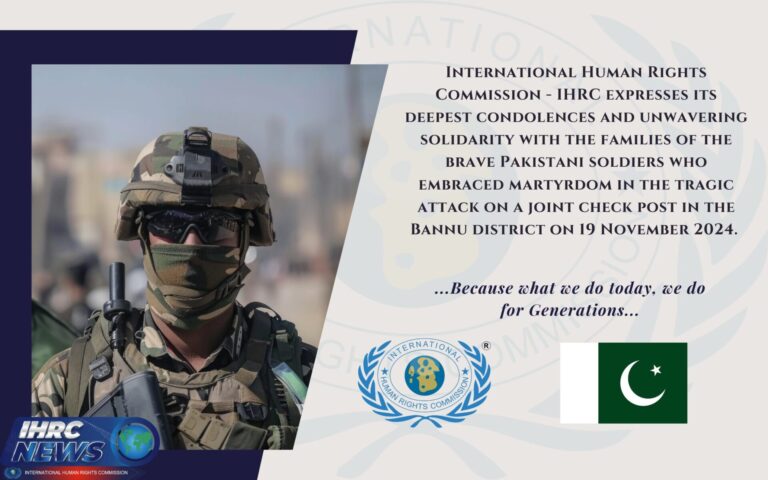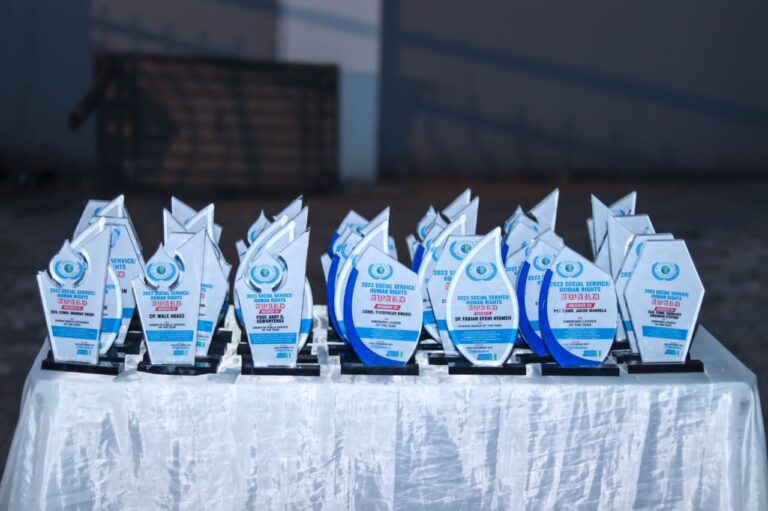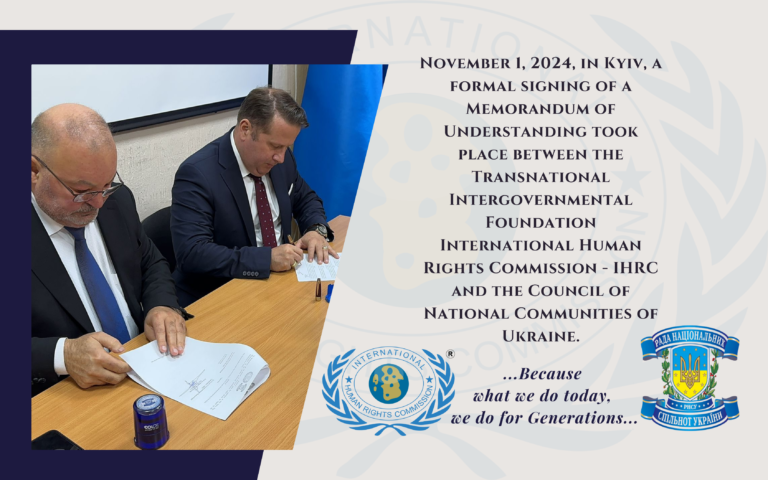International Human Rights Commission-IHRC: Stakeholders Harps on Synergy of Human Rights Actors for Effective Activism
December 31, 2023
Stakeholders have expressed concern about consolidating and sustaining human rights into the future, highlighted crucial challenges faced by law enforcement agencies in discharging their duties, and called for synergy between actors to ensure fundamental human rights of citizens are not compromised.
The Special Monitoring Mission of the International Human Rights Commission-IHRC South/South Region reports that the various stakeholders comprising the Police, National Drug Law Enforcement Agency (NDLEA), the Nigeria Army, including the Delta State University Abraka, and other Civil Rights Groups spoke at her 2023 end of year Human Rights Stakeholders Summit on Saturday in Abraka Delta State.

The various stakeholders expressed concern over the development, with an emphasis that the summit will help to develop a comprehensive experience of human rights advocacy hinged to provide creative, concrete knowledge of how to use international and regional human rights treaties and enforcement mechanisms in their work for the protection and promotion of human rights.
They bemoaned the non-compliance to human rights laws, particularly from those who are entrusted to protect and uphold them, ranging from the home, community leaders, political actors, and law enforcement agencies while anticipating the integration of knowledge in the fields of politics, economics, cultural diversity, gender issues, security, and socio-psychology in the context of human rights.



Fidelis Onakpoma, the Regional Coordinator for IHRC Special Monitoring Mission South-South Region, in his opening remark, commended various stakeholders for participating in the one-day human rights summit, imploring them on the need for effective collaboration towards consolidating and sustaining human rights into the future.
He said IHRC was deeply concerned about synergy’s approach and the application of a comprehensive experience of human rights advocacy on how to use international and regional human rights treaties and enforcement mechanisms in their work for the protection and promotion of human rights.
He explained that tertiary institutions, human rights educators, activists, law enforcement officers, lawyers, women activists, research officers, leaders, members of coalitions and networks, staff of NGOs and CBOs, volunteers, development actors, trainers, and students, participated in the summit.
“As stakeholders, we will leverage our partnerships by creating awareness, and implementing enforceable regulations that can help in reducing human rights violations in our communities”.
CP Wale Abass, the Delta State Commissioner of Police, commended IHRC’s idea on the one-day stakeholders engagement, assuring the stakeholders of the Police’s commitment to the quest for any cause that would consolidate human rights into the future.

The CP who was ably represented by the DPO of Abraka Police Station SP Fabian Efehi Ayameh, stressed that the alarming consequences that have emerged due to non-compliance to human rights cannot be ignored.
He noted that apart from human rights actors being worried about the situation, citizens are getting perturbed that their fundamental human rights are being compromised gradually while appropriate government agencies look the other way.
“But through this summit, information sharing and fruitful exchange of ideas on enforceable and emergency response, considered to bolster human rights compliance and effectively address any human rights related incidents that may occur, will be established, courtesy of the International Human Rights Commission-IHRC”.
The Commissioner of Police further said that training programs, and capacity building for policemen and paramilitaries working with the Nigeria Police such as the Vigilante and Anti-cult, will be implemented to enhance their mode of operation in compliance with human rights laws.
“The fundamental human rights of our citizens are non-negotiable, and we will leave no stone unturned in protecting their lives,” he said.
Similarly, the State Commander of NDLEA Delta State Command, Barr. Abubakar Wada, represented by ASN. Cletus Nduka Ndubuisi, said there was a need for all stakeholders to double their efforts, not only in the area of collaboration but also in enlightenment.


Prof. Andy Ogochukwu Egwunyega, Vice-Chancellor of Delta State University Abraka (DELSU), represented by Prof. Ben Nwane also stressed the need for synergy and collaboration between all the stakeholders.
He noted that DELSU under the indefatigable leadership of Prof. Andy Egwunyega has attained milestone achievements with compliance to human rights laws such as gender equality, no sex for grade, sexual harassment policy, inclusion, and good governance, to mention but a few.


DELSU had a lot of implementable and enforceable policies safeguarding fundamental human rights, adding that their efforts to consolidate and sustain human rights into the future of the institution remain unwavering.
Pastor (Comr.) Edewor Egedegbe, Chairman Human Rights Protection Congress, asserted that as much as we ensure that more people comply with human rights laws, as we hold our abusers accountable, the issue of education and enlightenment of the public cannot be overemphasized.



“By advocating for sustainable practices, formulating effective policies, and strengthening the capacities of the state, we strive to mitigate the human rights violations in our state”, he hinted.
In his recommendations on what should be done to consolidate and sustain human rights into the future, he submitted that:
- Citizens should be responsible for supporting and providing reliable information to security agencies in a bid to ensure peaceful co-existence.
- Community leaders should not aid and abate criminals in their community for selfish reasons because a peaceful community is a potential community for development.
- Security agencies should earn citizens’ trust through their actions, and not make themselves enemies of the people they intend to protect through oppression, violation of constitutional rights, extortion, etc.
- Security agents should not allow themselves to be used to undermine the laws of the land/court orders by political office holders and money bags, for their selfish interest thereby neglecting the rule of law in a democratic dispensation where the office of the citizen is the highest in the land.
- Government should ensure and make adequate provision for the wellbeing of its citizens and security personnel, and should not use “the people’s power” vested in them against the wishes and aspirations of the people.
- Patriotism should take centre stage for all citizens whether officers or citizens alike and not engage in parochialism and bigotry.
Issued:
Fidelis Onakpoma,
Head, Media and Strategic Communications IHRC Nigeria.
